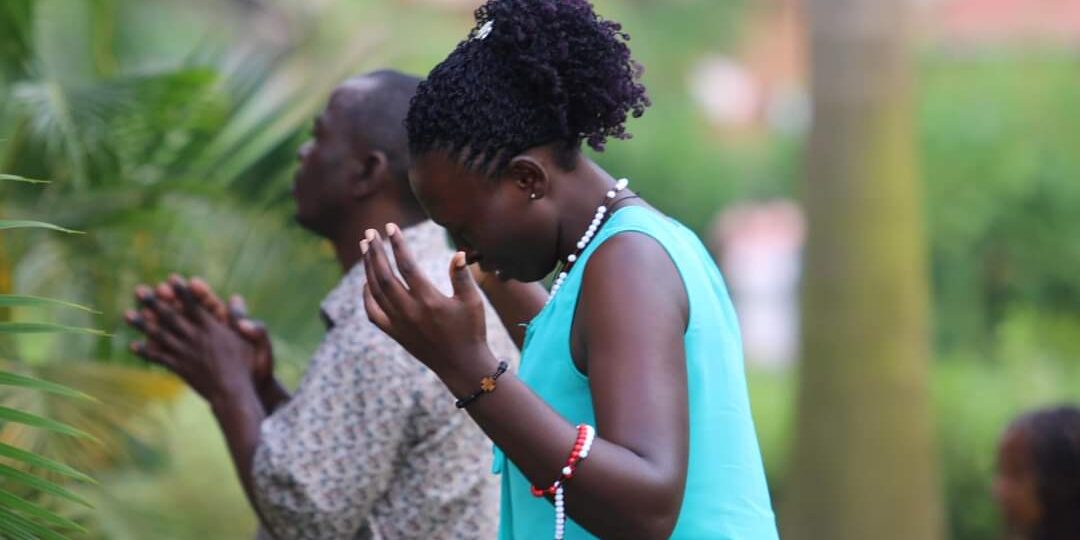The pearl of Africa is a place where faith transcends borders, bringing together people of all backgrounds in a shared spirit of peace and respect. The religious heritage of Uganda spans across indigenous beliefs, Islam, and Christianity – offering a fascinating glimpse into the intersection of faith and tradition.
Let’s take a brief insight of Uganda’s most prominent religions.
Christianity – The dominant Faith
Christianity is the most widely practiced religion in Uganda, with nearly four-fifths of the population identifying as Christians. The Christian community in Uganda is mainly divided into two branches: Roman Catholics and Protestants, with the latter being predominantly Anglican.
However, the Christian presence in Uganda is not limited to these two groups alone. The country is also home to various other Christian denominations such as Pentecostals, Seventh-day Adventists, Baptists, and Presbyterians, all of whom contribute to the vibrant religious landscape.
Christianity History in Uganda
The spread of Christianity in Uganda dates back to the colonial period, when missionaries from both Catholic and Protestant backgrounds arrived to share their faith. Interestingly, Catholics were colloquially referred to as “bafaransa” (the French), and Protestants as “bangereza” (the British), reflecting their colonial roots.

Christianity Pilgrims at the Uganda Martyrs museum in Namugongo
Over time, Christianity became deeply ingrained in Ugandan society, and today, churches remain central to many Ugandans’ daily lives.
In the early 1930s, a significant religious movement called the “balokole” (meaning “born again”) emerged within the Anglican Church. This Pentecostal revival movement spread across Eastern Africa and has continued to shape the Pentecostal movement that is now a powerful force in Uganda and beyond.
This spirit of renewal and vibrant worship continues to attract followers, and Pentecostal churches are prominent in Ugandan cities and towns.
Islam – The First Exogenous Religion
Islam was the first of the major exogenous religions to arrive in Uganda, introduced by traders and missionaries long before Christianity. By the 1970s, Islam had gained considerable political influence, and its presence is still felt today. Roughly one-eighth of the Ugandan population practices Islam, primarily Sunni, and mosques are widespread, particularly in urban areas.

Moslems Praying
The influence of Islam in Uganda can be seen in the country’s rich cultural heritage. From architecture to festivals, Islamic traditions are an important part of Uganda’s identity. Islamic practices such as fasting during Ramadan and the celebration of Eid-al-Fitr are deeply woven into the social fabric of Ugandan communities.
Indigenous Religions – The Roots of Ugandan Beliefs
Before the arrival of Islam and Christianity, Uganda’s people practiced a variety of indigenous religions. These traditional belief systems are still maintained by a small portion of the population, particularly in rural areas. Indigenous religions in Uganda are diverse, with each ethnic group having its own distinct set of beliefs, rituals, and deities.

Mparo Royal Tombs, the final resting ground of Omukama Kabalega, Omukama Tito Winyi and other royals of Bunyoro-Kitara.
One interesting norm followed here is; If you had an extramarital affair the previous night, it’s a taboo for you to enter the Tombs
In many Ugandan communities, religion is interwoven with everyday life, with belief in spirits, ancestors, and nature playing central roles in the community’s social and spiritual activities. Though many Ugandans have embraced Christianity or Islam, elements of these indigenous beliefs have been incorporated into their new religious practices, creating syncretic forms of worship that combine aspects of both old and new faiths.
Other Religions
In addition to the major faiths of Christianity and Islam, Uganda is also home to a small but significant community of Abayudaaya Jews. These are the descendants of Ugandans who converted to Judaism in the 1920s. Although small in number, the Abayudaaya community continues to maintain its unique practices, and their presence adds to the diversity of Uganda’s religious heritage.
Historically, Uganda also had a sizable South Asian community, including Sikhs and Hindus, many of whom lived in the country until their expulsion in 1972. In recent years, with the return of South Asian immigrants, Sikhism and Hinduism have been re-established in Uganda. Today, the vibrant temples in cities like Kampala serve as important centers of worship for these communities.
Religious Freedom and Tolerance
One of the most remarkable aspects of Uganda’s religious landscape is the freedom and tolerance that exists among its diverse faiths. Uganda’s 1995 constitution guarantees freedom of religion, allowing individuals to practice their faith without fear of persecution. This commitment to religious freedom has contributed to Uganda’s reputation as a place where people of different faiths live harmoniously.
Religious Tourism
Uganda’s rich religious diversity makes it a fascinating destination for travelers interested in exploring the spiritual and cultural aspects of the country.
From the grandeur of the Catholic cathedrals such as Rubaga and Namugongo Martyrs shrine in Kampala to the peaceful mosques scattered throughout the country such as the Gaddafi National Mosque, Uganda offers a deep and meaningful religious journey.
Visitors can learn about the traditional beliefs that shaped Ugandan society, the vibrant Christian and Islamic communities, and the small yet important groups like the Abayudaaya Jews and the South Asian religions.







